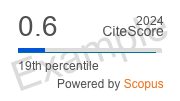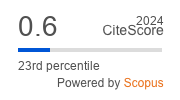Predictors of the development of cognitive impairment in patients undergoing pulmonary thromboendarterectomy
https://doi.org/10.29001/2073-8552-2023-38-2-188-197
Abstract
Aim: To study the clinical and functional features, as well as intra- and postoperative indicators of patients with chronic thromboembolic pulmonary hypertension (CTEPH) with the development of negative dynamics of cognitive status in the early postoperative period and to identify pathophysiological factors associated with this disorder.
Material and Methods. The study included patients with CTEPH scheduled for pulmonary endarterectomy (PEA). The 1st group (38 people) consisted of patients with the development of negative dynamics of cognitive functions according to the MMSE scale in the early postoperative period, the 2nd group (91 people) – without negative dynamics of cognitive functions. Preoperative clinical, anamnestic data, intraoperative parameters, early postoperative complications and their relationship with the negative postoperative dynamics of cognitive status were analyzed.
Results. The average age of patients in the general group was 54.1 (44.3–68.1) years. The 1st group was characterized by older age (p = 0.03), a prevalence of patients with diabetes mellitus (p = 0.02), arterial hypertension (p = 0.04), atherosclerosis of the brachiocephalic arteries ≤ 50% (p = 0.04) and higher level of Charlesson comorbidity index (p = 0.002) in comparison with the 2nd group. Intraoperative factors for the development of postoperative cognitive impairment were a longer circulatory arrest (CA) during PEA and a more pronounced decrease in cerebral oxygenation during CA. The 1st group of patients were characterized by a large number of complications, including pulmonary heart failure (p = 0.02), acute renal failure (p < 0.001) and atrial fibrillation (p < 0.001) in comparison with the 2nd group. The development of negative postoperative dynamics of cognitive status in CTEPH patients was associated with baseline reduced cognitive function – OR 2.3 (1.4–9.2 95% CI) (p = 0.01) and with the presence of three or more CA during PEA – OR 3.2 (1.1–12.7 95% CI) (p = 0.01).
Conclusion. Independent factors for the development of negative postoperative dynamics of cognitive status in patients with CTEPH were baseline impairment of cognitive function (< 20 points according to the MMSE scale), three or more CA during PEA, and the development of new-onset atrial fibrillation in the early postoperative period.
About the Authors
A. S. KlinkovaRussian Federation
Asya S. Klinkova - Cand. Sci. (Med.), Research Scientist, Laboratory of Clinical Physiology, Research Department of Anesthesiology and Critical Care Medicine
15, Rechkunovskaya str., Novosibirsk, 630055, Russian Federation
O. V. Kamenskaya
Russian Federation
Oksana V. Kamenskaya - Dr. Sci. (Med.), Head of the Laboratory of Clinical Physiology, Research Department of Anesthesiology and Critical Care Medicine
15, Rechkunovskaya str., Novosibirsk, 630055, Russian Federation
I. Y. Loginova
Russian Federation
Irina Y. Loginova - Cand. Sci. (Biol.), Research Scientist, Laboratory of Clinical Physiology, Research Department of Anesthesiology and Critical Care Medicine
15, Rechkunovskaya str., Novosibirsk, 630055, Russian Federation
S. S. Porotnikova
Russian Federation
Svetlana S. Porotnikova - Research Scientist, Laboratory of Clinical Physiology, Research Department of Anesthesiology and Critical Care Medicine
15, Rechkunovskaya str., Novosibirsk, 630055, Russian Federation
I. I. Volkova
Russian Federation
Irina I. Volkova - Cand. Sci. (Med.), Doctor of Functional Diagnostics, Head of the Department of Ultrasound and Functional Diagnostics
15, Rechkunovskaya str., Novosibirsk, 630055, Russian Federation
D. V. Habarov
Russian Federation
Dmitriy V. Habarov - Dr. Sci. (Med.), Research Scientist, Scientist Research, Department of Anesthesiology and Critical Care Medicine; Leading Research Scientist, Laboratory of Operative Surgery and Lymphatic Detoxification, Head of the Department of Anesthesiology and Critical Care Medicine
15, Rechkunovskaya str., Novosibirsk, 630055, Russian Federation
2, Timakova str., Novosibirsk, 630060, Russian Federation
V. V. Lomivorotov
Russian Federation
Vladimir V. Lomivorotov - Dr. Sci. (Med.), Professor, Chief Research Scientist, Research Department of Anesthesiology and Critical Care Medicine
15, Rechkunovskaya str., Novosibirsk, 630055, Russian Federation
V. N. Lomivorotov
Russian Federation
Vladimir N. Lomivorotov - Dr. Sci. (Med.), Professor, Institute of Higher and Additional Professional Education
15, Rechkunovskaya str., Novosibirsk, 630055, Russian Federation
A. M. Chernyavskiy
Russian Federation
Alexander M. Chernyavskiy - Dr. Sci. (Med.), Corresponding Member of the Russian Academy of Sciences, General Director
15, Rechkunovskaya str., Novosibirsk, 630055, Russian Federation
References
1. Wilkens H., Konstantinides S., Lang I.M., Bunck A.C., Gerges M., Gerhardt F. et al. Chronic thromboembolic pulmonary hypertension (CTEPH): Updated Recommendations from the Cologne Consensus Conference 2018. Int. J. Cardiol. 2018;272S:69–78. DOI: 10.1016/j.ijcard.2018.08.079.
2. Chazova I.E., Karabasheva M.B., Danilov N.M., Matchin Yu.G. Chronic thromboembolic pulmonary hypertension: modern view on the problem. Russian Cardiology Bulletin. 2019;14(2):14–23. (In Russ.). DOI: 10.17116/Cardiobulletin20191402114.
3. Ivkin A.A., Grigoriyev E.V., Shukevich D.L. Influence of cardiopulmonary bypass on postoperative cognitive dysfunction. Kardiologiya i Serdechno-Sosudistaya Khirurgiya. 2021;14(2):168–174. (In Russ.). DOI: 10.17116/kardio202114021168.
4. Tsyrenov D.D., Akchurin R.S., Mershin K.V., Tabakyan E.A., Vlasova E.E., Gazizоv V.V. et al. Cardiological aspects of the perioperative management of patients with chronic thromboembolic pulmonary hypertension for pulmonary thromboendarterectomy. Eurasian heart journal. 2021;(1):94–104. (In Russ.). DOI: 10.38109/2225-1685-2021-1-94-1044.
5. Kynta R.L., Rawat S., Mandal M., Saikia M.K. Pulmonary thromboendarterectomy without circulatory arrest. Braz. J. Cardiovasc. Surg. 2022;37(3):394–400. DOI: 10.21470/1678-9741-2020-0534.
6. Vuylsteke A., Sharples L., Charman G., Kneeshaw J., Tsui S., Dunning J. et al. Circulatory arrest versus cerebral perfusion during pulmonary endarterectomy surgery (PEACOG): a randomised controlled trial. Lancet. 2011;378(9800):1379–1387. DOI: 10.1016/s0140-6736(11)61144-6.
7. Gazizov V.V., Mershin K.V., Tabak’yan E.A., Tsyrenov D.D., Akchurin R.S. Pulmonary thrombendarterectomy with two temperature regimens in patients with chronic thromboembolic pulmonary hypertension. Clin. Experiment. Surg. Petrovsky J. 2019;7(4):42–49. (In Russ.). DOI: 10.24411/2308-1198-2019-14005.
8. Lyashenko E.A., Ivanova L.G., Chimagomedova A.Sh. Postoperative cognitive disorder. S.S. Korsakov Journal of Neurology and Psychiatry. 2020;120(10–2):39–45. (In Russ.). DOI: 10.17116/jnevro202012010239.
9. Folstein M.F., Folstein S.E., McHugh P.R. “Mini-mental state”. A practical method for grading the cognitive state of patients for the clinician. J. Psychiatr. Res. 1975;12(3):189–198.
10. Sessler C.N., Gosnell M.S., Grap M.J., Brophy G.M., O’Neal P.V. et al. The Richmond Agitation-Sedation Scale: validity and reliability in adult intensive care unit patients. Am. J. Respir. Crit. Care Med. 2002;166(10):1338–1344. DOI: 10.1164/rccm.2107138.
11. Ely E.W., Margolin R., Francis J., May L., Truman B., Dittus R. et al. Evaluation of delirium in critically ill patients: validation of the Confusion Assessment Method for the Intensive Care Unit (CAM-ICU). Crit. Care Med. 2001;29(7):1370–1379. DOI: 10.1097/00003246-200107000-00012.
12. Cognitive disorders in the elderly and senile age. Clinical recommendations, 2020. (In Russ.). URL: https://rgnkc.ru/images/metod_materials/KR_KR.pdf (20.04.2023).
13. Korsholm K., Andersen A., Mellemkjær S., Nielsen D.V., Klaaborg K.E., Ilkjær L.B et al. Results from more than 20years of surgical pulmonary endarterectomy for chronic thromboembolic pulmonary hypertension in Denmark. European Journal of Cardio-Thoracic Surgery. 2017;52(4):704–709. DOI: 10.1093/ejcts/ezx182.
14. Minatsuki S., Maki H., Hatano M., Komuro I. An analysis of mechanism of hypoxia in chronic thromboembolic pulmonary hypertension. The Journal of Heart and Lung Transplantation. 2016;35(4):S355. DOI: 10.1016/j.healun.2016.01.1020.
15. Kamenskaya O., Klinkova A., Loginova I., Chernyavskiy A., Lomivorotov V.V., Karaskov A. Factors affecting the quality of life before and after surgery in patients with chronic thromboembolic pulmonary hypertension. Qual. Life Res. 2018;27(3):747–754. DOI: 10.1007/s11136-017-1712-4.
16. Brownlee N.N.M., Wilson F.C., Curran D.B., Lyttle N., McCann J.P. Neurocognitive outcomes in adults following cerebral hypoxia: A systematic literature review. NeuroRehabilitation. 2020;47(2):83–97. DOI: 10.3233/NRE-203135.
17. Grigoriev E.V., Shukevich D.L., Plotnikov G.P., Khutornaya M.V., Tsepokina A.V., Radivilko A.S. Neuroinflammation in critical care: mechanisms and protective role of hypothermia. Fundamental and Clinical Medicine. 2016;1(3):88–96. (In Russ.).
18. Ovezov A.M., Panteleeva M.V., Knyazev A.V., Lugovoj A.V., Bragina S.V. Cognitive dysfunction and general anesthesia: from pathogenesis to prevention and correction. Neurology, neuropsychiatry, psychosomatics. 2016;8(3):101–105. (In Russ.). DOI: 10.14412/2074-2711-2016-3-101-105.
Review
For citations:
Klinkova A.S., Kamenskaya O.V., Loginova I.Y., Porotnikova S.S., Volkova I.I., Habarov D.V., Lomivorotov V.V., Lomivorotov V.N., Chernyavskiy A.M. Predictors of the development of cognitive impairment in patients undergoing pulmonary thromboendarterectomy. Siberian Journal of Clinical and Experimental Medicine. 2023;38(2):188-197. (In Russ.) https://doi.org/10.29001/2073-8552-2023-38-2-188-197





.png)





























